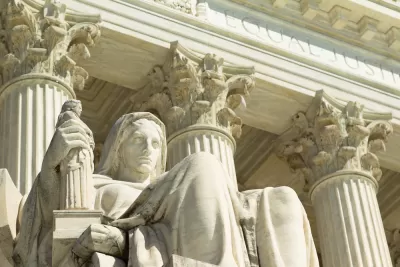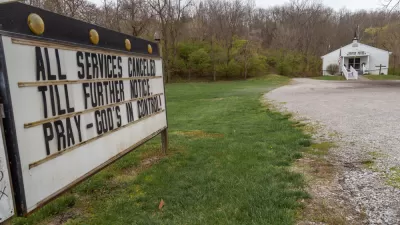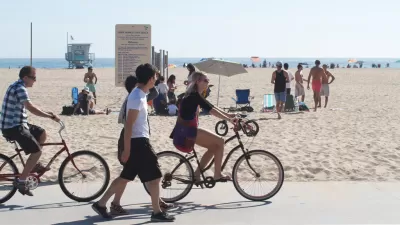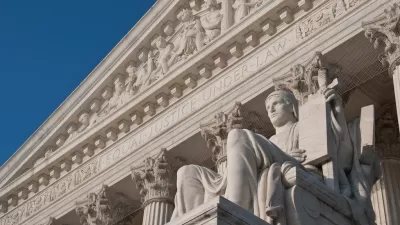In a 5-4 decision, the court voted to uphold the prohibition of religious services that was part of California Gov. Gavin Newsom's stay-at-home order. While the restriction had since been loosened, the plaintiff wanted all restrictions removed.

“California’s latest safety guidelines discriminate against places of worship and in favor of comparable secular businesses,” wrote Justice Brett M. Kavanaugh. “Such discrimination violates the First Amendment.”
Justices Clarence Thomas and Neil M. Gorsuch joined Kavanaugh’s dissent. The court’s order said Justice Samuel A. Alito Jr. also would have granted the church’s request, but he did not join the Kavanaugh statement.
A few days after the Ninth Circuit upheld the church services ban, Newsom issued new, controversial guidance [pdf] that permits indoor church services with one notable restriction.
Places of worship must therefore limit attendance to 25% of building capacity or a maximum of 100 attendees, whichever is lower. This limitation will be in effect for the first 21-days of a county public health department’s approval of religious services and cultural ceremonies activities at places of worship within their jurisdictions.
"Even if just one infected person showed up to such an event, the virus could easily be transmitted to many people and overwhelm local health officials’ ability to investigate all related cases," warned Santa Clara County Health Officer Sara Cody on May 26. Cody worked with five of her counterparts in Bay Area counties to shut down the region just a few days before Newsom did so, which many public health experts credit for their flattening the curve.
Barnes notes that the expert who testified on behalf of California presented evidence of just such infection spread, including "a worship service in Sacramento tied to 71 COVID-19 cases; a choir practice in Seattle [sic]; linked to 32 cases; a Kentucky church revival tied to 28 cases; and a religious service in South Korea where over 5,000 cases were traced back to a single infected individual in attendance.”
Advice to courts
In a follow-up piece published on May 30, Barnes writes that in five paragraphs, "Roberts laid out what will likely be the test for courts going forward."
"Protecting public health is a "dynamic and fact-intensive matter subject to reasonable disagreement, but one the Constitution “principally entrusts” to elected officials.
Generally, he said, “they should not be subject to second-guessing by an unelected federal judiciary, which lacks the background, competence, and expertise to assess public health and is not accountable to the people.”
In his earlier piece, Barnes wrote that Roberts quoted a court precedent in this sentence.
Related in Planetizen:

Montreal Mall to Become 6,000 Housing Units
Place Versailles will be transformed into a mixed-use complex over the next 25 years.

Planetizen Federal Action Tracker
A weekly monitor of how Trump’s orders and actions are impacting planners and planning in America.

California High-Speed Rail's Plan to Right Itself
The railroad's new CEO thinks he can get the project back on track. The stars will need to align this summer.

Nevada Legislature Unanimously Passes Regional Rail Bill
If signed by the governor, the bill will create a task force aimed at developing a regional passenger rail system.

How Infrastructure Shapes Public Trust
A city engineer argues that planners must go beyond code compliance to ensure public infrastructure is truly accessible to all users.

Photos: In Over a Dozen Cities, Housing Activists Connect HUD Cuts and Local Issues
We share images from six of the cities around the country where members of three national organizing networks took action on May 20 to protest cuts to federal housing funding and lift up local solutions.
Urban Design for Planners 1: Software Tools
This six-course series explores essential urban design concepts using open source software and equips planners with the tools they need to participate fully in the urban design process.
Planning for Universal Design
Learn the tools for implementing Universal Design in planning regulations.
City of Camden Redevelopment Agency
City of Astoria
Transportation Research & Education Center (TREC) at Portland State University
Municipality of Princeton (NJ)
Regional Transportation Commission of Southern Nevada





























